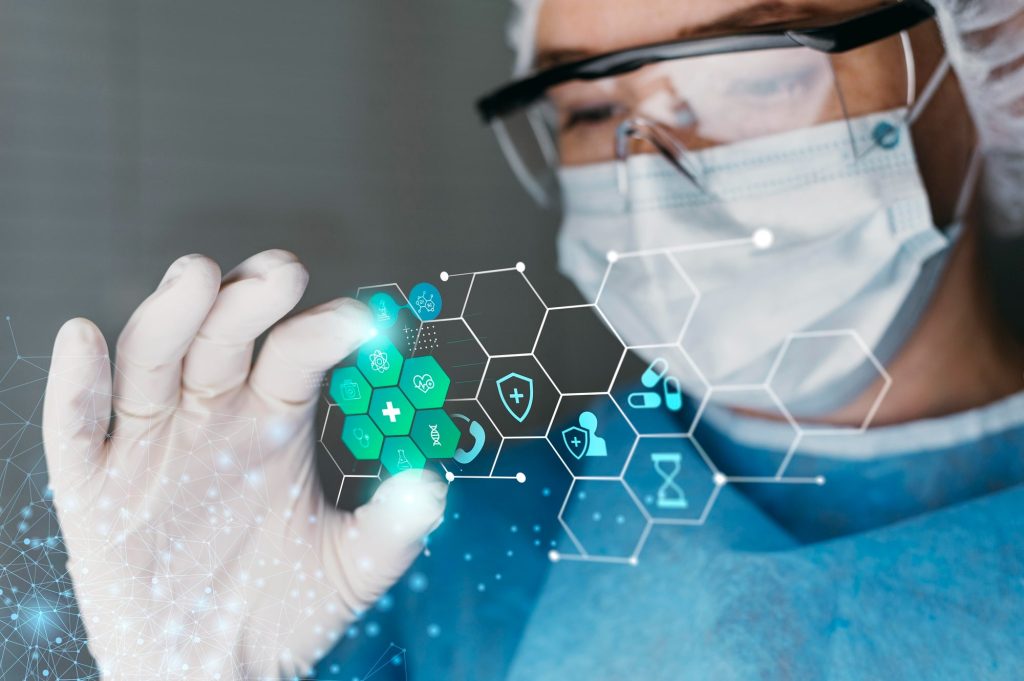The future of healthcare is being reshaped by groundbreaking technological advancements that are revolutionizing the way we approach medicine. From telemedicine and artificial intelligence to wearable health devices and electronic health records, technology is not just enhancing patient care but also streamlining medical practices. In this article, we will delve into how these innovations are transforming the healthcare landscape, making it more efficient, accessible, and patient-centered.
As we explore the future of healthcare, you will discover the pivotal role that data analytics plays in predictive medicine, enabling healthcare providers to make informed decisions and improve patient outcomes. We will also discuss the rise of telehealth services, which have become essential in providing care to patients in remote areas and during global health crises. Furthermore, we will examine how artificial intelligence is being utilized to diagnose diseases more accurately and develop personalized treatment plans.
Join us on this enlightening journey as we uncover the myriad ways technology is transforming medicine. Whether you are a healthcare professional, a patient, or simply someone interested in the future of healthcare, this article will provide valuable insights into the innovations that are shaping the medical field. Read on to learn how these advancements are not only improving healthcare delivery but also empowering patients to take charge of their health like never before.
Telemedicine: Bridging the Gap in Healthcare Access
Telemedicine has revolutionized the way patients access healthcare services. With the advent of high-speed internet and mobile technology, patients can now consult with healthcare professionals from the comfort of their homes. This is particularly beneficial for individuals living in remote areas where access to medical facilities is limited. Telemedicine not only saves time and travel costs but also reduces the burden on healthcare systems by allowing doctors to manage more patients efficiently.
Moreover, telemedicine has proven invaluable during public health crises, such as the COVID-19 pandemic. It has enabled healthcare providers to continue offering essential services while minimizing the risk of virus transmission. As technology continues to evolve, we can expect telemedicine to integrate more advanced features, such as AI-driven diagnostics and virtual reality consultations, further enhancing patient care.
Artificial Intelligence in Diagnostics and Treatment
Artificial Intelligence (AI) is transforming diagnostics and treatment protocols in healthcare. Machine learning algorithms can analyze vast amounts of medical data, identifying patterns that may be missed by human practitioners. For instance, AI systems are now being used to detect diseases like cancer at earlier stages, significantly improving patient outcomes. These technologies can also assist in personalizing treatment plans based on individual patient data, leading to more effective and targeted therapies.
Furthermore, AI can streamline administrative tasks, allowing healthcare professionals to focus more on patient care. By automating scheduling, billing, and record-keeping, AI reduces the administrative burden on healthcare providers, leading to increased efficiency and reduced costs. As AI technology continues to advance, its role in healthcare will likely expand, offering even more innovative solutions to complex medical challenges.
Wearable Health Technology: Monitoring Health in Real-Time
Wearable health technology, such as smartwatches and fitness trackers, is becoming increasingly popular for monitoring health metrics in real-time. These devices can track vital signs, physical activity, and even sleep patterns, providing users with valuable insights into their health. By collecting and analyzing this data, individuals can make informed decisions about their lifestyle and health management.
Moreover, wearable technology can play a crucial role in chronic disease management. For example, patients with diabetes can use continuous glucose monitors to track their blood sugar levels throughout the day, allowing for timely interventions. As the technology evolves, we can expect more sophisticated wearables that integrate with healthcare systems, enabling healthcare providers to monitor patients remotely and intervene when necessary.
Blockchain Technology: Enhancing Data Security and Interoperability
Blockchain technology is emerging as a powerful tool for enhancing data security and interoperability in healthcare. By providing a decentralized and tamper-proof system for storing medical records, blockchain can ensure that patient data is secure and accessible only to authorized individuals. This is particularly important in an era where data breaches are increasingly common, and patient privacy is paramount.
Additionally, blockchain can facilitate seamless data sharing between different healthcare providers, improving care coordination and patient outcomes. With a unified system, healthcare professionals can access comprehensive patient histories, leading to more informed decision-making. As the healthcare industry continues to adopt blockchain technology, we can expect significant improvements in data management and patient care.
The Role of Robotics in Surgery and Rehabilitation
Robotics is playing an increasingly important role in surgery and rehabilitation, offering precision and efficiency that traditional methods cannot match. Robotic-assisted surgeries allow surgeons to perform complex procedures with enhanced accuracy, resulting in less invasive techniques and quicker recovery times for patients. These advancements are particularly beneficial in fields such as orthopedics and cardiology, where precision is critical.
In rehabilitation, robotic devices are being used to assist patients in regaining mobility and strength after injuries or surgeries. These technologies can provide personalized therapy regimens, adapting to the patient’s progress and needs. As robotics technology continues to advance, we can expect even more innovative applications in healthcare, ultimately improving patient outcomes and quality of life.
| Aspect | Description |
|---|---|
| Telemedicine | Telemedicine allows patients to consult with healthcare providers remotely, improving access to care and convenience. |
| Wearable Technology | Devices like smartwatches and fitness trackers monitor health metrics, enabling proactive health management and early detection of issues. |
| Artificial Intelligence | AI is used for diagnostics, personalized treatment plans, and predictive analytics, enhancing decision-making in healthcare. |
| Electronic Health Records (EHR) | EHR systems streamline patient data management, improving communication among healthcare providers and ensuring better patient care. |
| Robotics | Robotic surgery and assistance improve precision in procedures, reduce recovery times, and enhance surgical outcomes. |
| 3D Printing | 3D printing technology is used to create custom prosthetics, implants, and even bioprinted tissues, revolutionizing personalized medicine. |
| Blockchain | Blockchain technology enhances data security and interoperability in healthcare, ensuring patient privacy and data integrity. |
| Health Apps | Mobile health applications empower patients to manage their health, track medications, and access health information easily. |
| Genomics | Advancements in genomics allow for personalized medicine approaches, tailoring treatments based on individual genetic profiles. |
| Virtual Reality (VR) | VR is used for medical training and patient therapy, providing immersive experiences that enhance learning and treatment outcomes. |



